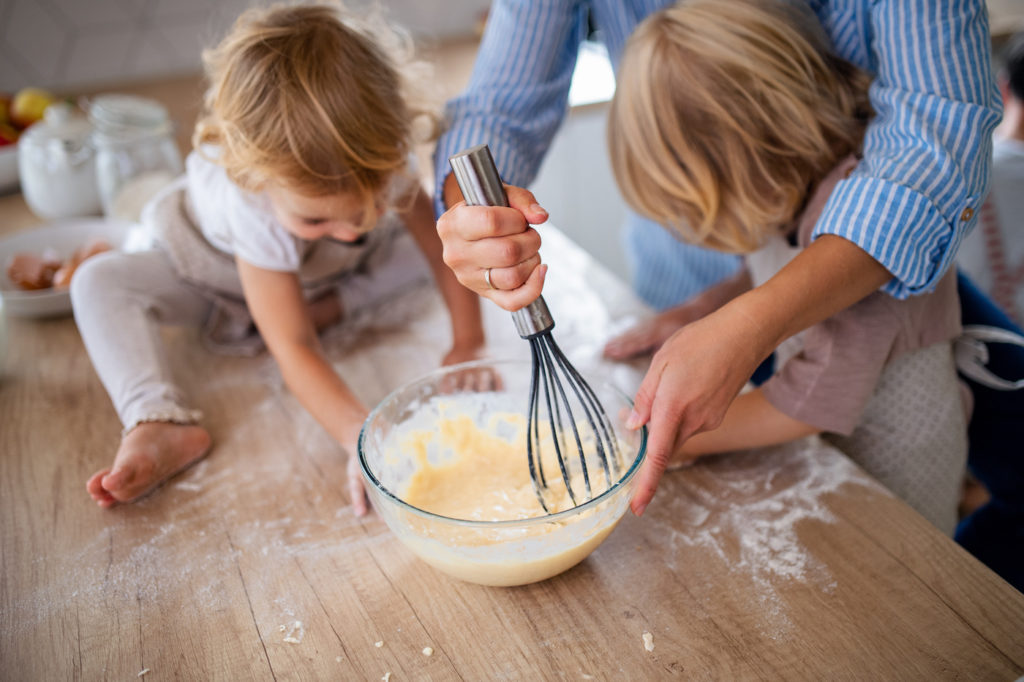This essay is part of a series concerning the Coronavirus pandemic. Read more from the collection here.
I’ve never been one for battle stories, and I religiously avoid films about war. It’s not because I can’t take the violence; I just can’t imagine myself in combat. I can’t relate or connect with tales of swordplay, grenades, or trench warfare. But I’ve always been drawn to stories of the home front during war, the stories of people who are trying to keep the good, the true, and the beautiful alive when everything has been turned upside down by tragedy. How does the human heart bear the anxiety of loved ones constantly in danger? How does the human spirit persist when the duration of suffering is unknown? Could I survive that kind of powerlessness in the face of a great terror? Would I unravel?
Well, here I am now, with a pandemic sweeping away all traces of normalcy, and I’m doing my fair share of unraveling. I’m not in the trenches. I’m not a heroic healthcare worker risking exposure in order to save lives, experiencing the trauma of an overwhelmed and ill-equipped system collapsing around them. I’m not a brilliant scientist racing against the clock to find a vaccine. I am not a priest offering anointing of the sick to those gravely ill with the virus. I am not being asked to make any of those extraordinary sacrifices. I’m just in my house with an internet connection and my family. We have plenty of food, and so far—praise God—we are healthy. I’m not on the front lines of this battle against a faceless enemy.
[Read: The Coronavirus Has Revealed a Deeper Political Disease.]
Start your day with Public Discourse
Sign up and get our daily essays sent straight to your inbox.I feel powerless to fight the wave of illness overwhelming my country. Still, I have a job to do. I can stay put for the safety of my family, neighbors, and medical community. I can keep the home fires burning for my four children and for my husband, who is working hard making hand sanitizer every day at the distillery where, until recently, he distilled fine whiskey.
As I process how life has changed in the past weeks, I look to some of my literary heroes. I’ve been channeling Laura Ingalls Wilder and drying clothes on a line (because turns out it’s hard to get a broken dryer fixed when you’re sheltering-in-place). But the figure at the forefront of my mind is Rilla Blythe.
Learning from Rilla Blythe
Rilla is the protagonist of L. M. Montgomery’s last novel in the Anne of Green Gables series, Rilla of Ingleside, which is set in Canada during the Great War. The book opens just before war breaks out. As the story progresses, Rilla, the young teenage daughter of Anne and Gilbert Blythe, watches life as she knew it crumble around her. The days of carefree parties and dances are replaced with long years of darkness. The crippling fear of loss becomes a daily companion.
The war changes Rilla and everyone in her family. Her older brothers go off to fight, her father Dr. Blythe cares for patients on the home front, and her older sisters become nurses. The Blythes’ cook, housekeeper, and adopted family member, Susan Baker, makes comforting meals with the determination of a general. The kitchen is her battlefield, and she cooks as if her pies and cakes can destroy the Kaiser himself. Rationing is a challenge happily accepted for love of the boys fighting overseas. Susan has the task of feeding the Blythe family, and by God she will succeed or die trying.
Rilla longs to do something important, but she learns to accept the small griefs necessary to contribute her small part to the fight. Her sacrifices aren’t made on a battlefield. Instead, she learns the importance of fighting for home life—of all that binds us to the people we love, of all that reminds us that we are human beings, of all that reminds us that we belong to each other. Rilla and her mother contribute to the war effort in their community, and they try to make home a place where hope and joy survive in the dark years of war.
[Read: Leisure in a Time of Coronavirus.]
On the home front, concerts are organized, poems are written, and tables are set for holiday dinners. The Blythes’ oldest son is fighting overseas on the day when the mayflowers bloom—the day he would always gather some for his mother. A neighbor anticipates the pain this will cause Mrs. Blythe and presents her with a bouquet in her son’s stead. No one is alone. Rilla learns to be brave and selfless. She sees the task of uplifting her family as a key element of her war effort. They all must hold each other up when they start to fall apart, to keep some sense of normal life in the midst of chaos, to maintain the rituals that make us human.
When the crisis has passed, when the cloud of fear and anxiety is lifted, everyone has changed. Loved ones are dead or traumatized by war. The importance of relationships and sacrificial love is magnified. A new world begins.
Our Victorious Weapons
I do not pretend that my experience of being homebound with my family is on the same level as the sacrifices made during the Great War, but I do relate to feeling powerless to stop something poised to destroy those I love. My husband and two of my children have asthma. My parents and in-laws are in their sixties and seventies, and my mother is immunocompromised due to cancer treatment. As deaths mount exponentially each day and the virus spreads, I feel the weight of terror heavy on my heart. How long, O Lord?
I do not pretend that my experience of being homebound with my family is on the same level as the sacrifices made during the Great War, but I do relate to feeling powerless to stop something poised to destroy those I love.
And yet, am I truly powerless? I don’t think so. I cannot treat this virus, but I can slow its transmission. I can accept inconvenience and cabin fever by staying put in a tiny house bursting with kids to protect those even more vulnerable than my asthmatic family members. I can lean in to the unknown, accepting lost income and focusing all my efforts on making home a place that feels safe for my children—a place where there is hope and board games and fresh baked sourdough bread. I can virtually invite single friends “over for dinner” by FaceTiming them into life at our loud, messy family table. I can pray faithfully for an eradication of this virus, for those in financial crisis, healthcare workers, clergy, the sick, the lonely, and the dying.
In his address before the Urbi et Orbi blessing in Rome on March 27th, Pope Francis reminded us: “Prayer and quiet service: these are our victorious weapons.” These acts may seem small when measured against the weight of the world’s suffering, but the ways of God are not the ways of man. We are often blind to the power of simple things.
My home is my battlefield, and maintaining peace and joy for my family while we help flatten the curve is my fight.
My home is my battlefield, and maintaining peace and joy for my family while we help flatten the curve is my fight. I cannot treat those infected by COVID-19, but I can do my own small bit by staying home to give hospitals more time to prepare for the onslaught of cases coming their way. This is my time to be brave in small ways, as Rilla was, while healthcare workers courageously sacrifice their lives. This is my time to channel Susan Baker’s determination to keep home fires burning with gusto, as if each meal I set before my family were a punch in the teeth to the chaos caused by this deadly illness. We may be stuck at home for weeks or months, but by God we’ll have fresh sourdough bread and afternoon tea every day. We’ll read aloud our favorite stories, listen to beautiful music, and watch daily Mass while our hearts break with longing for the Eucharist. We will try to love each other well, fall short, and start again the next day.
These efforts will be almost entirely hidden from the world. They will not produce a vaccine or more ventilators, but every sacrifice born from love is powerful. While the healthcare community and medical supply producers must think big, Pope Francis encourages us to think small during this time of isolation in our homes.
We must rediscover the concreteness of little things, small gestures of attention we can offer those close to us, our family, our friends. We must understand that in small things lies our treasure. These gestures of tenderness, affection, compassion are minimal and tend to be lost in the anonymity of everyday life, but they are nonetheless decisive, important. . . . They are familiar gestures of attention to the details of everyday life that make life meaningful and that create communion and communication amongst us.
The small sacrifices that we make together can save lives. Staying home and loving your family can change the world. Our seemingly insignificant acts of love have the power to make life more beautiful through this crisis. And when—by the grace of God—we reach the other side of this nightmare, small acts of love will continue to be what make life worth living.













